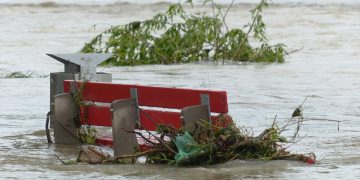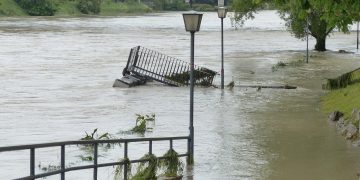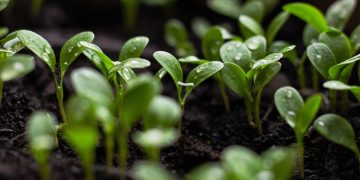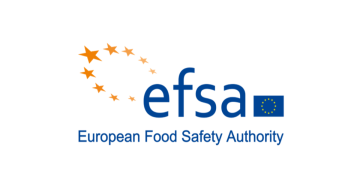DG AGRI organised a two-day conference on its forthcoming agri-food promotion policy review on 12-13 July 2021. The conference was part of a comprehensive consultation process, which also included an open public consultation, designed to feed into an ongoing review of agricultural promotion policy in DG AGRI. The review was announced in an inception impact assessment in February 2021 and follows the publication of a Commission evaluation in January 2021 which, in turn, was based on an external evaluation of promotion policy including an earlier public consultation. Further details on the EU’s agricultural promotion policy are provided on the relevant Commission web page.
The purpose of the review is to enhance the contribution of promotion policy to sustainable production and consumption, in line with evolving diets, while maintaining or even increasing the policy’s effectiveness in supporting the agrifood sector’s competitiveness. It identified two problems to be addressed. The first is the need to refocus the policy’s objectives. The current promotion policy, whilst supporting the sector’s competitiveness, is neither sufficiently geared to supporting the sector in this transition, nor is it sufficiently aiming at nudging consumption to sustainable choices or healthy diets. A second objective is to streamline the implementation model, in response to criticisms from stakeholders that procedures for simple programmes under shared management with Member States are considered more complex with lengthier response-times than those managed directly by the Commission.
The inception impact assessment put forward three separate options to be considered in the review.
(1) Building on the current success: The current policy would largely remain as it is. The Commission would use a soft-law approach made up of dynamic technical guidance to applicants and evaluators and enhanced selection and evaluation criteria (re-assessed every year) to positively discriminate in favour of promotion programmes that are consistent with the Farm to Fork Strategy objectives (and/or with other future policy developments).
(2) Focus the policy scope: On the EU internal market, this option would focus on promotion and information measures in support of sustainable agricultural production and consumption, in line with the Farm to Fork Strategy and Europe’s beating cancer plan, nudging consumers to healthier diets. The focus of promotion and information measures on non-EU markets would be more centred on the international dimension of Farm to Fork and the EU agrifood sector’s competitiveness.
(3) Review conditionality / eligibility: This scenario could entail the introduction of new conditionality requirements and eligibility criteria that incentivise applicants to demonstrate support for the Farm to Fork Strategy relevant objectives through their proposed promotion programmes, or to exclude applications from certain sectors.
Cross-cutting for all options was an option to streamline the implementation model, meaning the removal of shared-management, which the evaluation found is confusing and complex for beneficiaries, replacing it by direct management of all programmes.
The Commission’s intention is to finalise a full impact assessment in Q4 of 2021 with possible adoption of a legislative proposal in Q1 of 2022. The conference included a summary presentation of the results of the public consultation which noted a sharp divergence of views on many issues between citizen and civil society groups, on the one hand, and business and public administration groups, on the other hand.
I was asked to make a keynote intervention in the session devoted to the topic ‘Strengthening exports and the international reputation of EU agri-food products through the promotion policy’ and took part in a discussion with three other panellists representing stakeholder groups. My presentation slides can be downloaded here, and I reproduce below a very slightly edited version of my contribution. It highlights the issues that I feel should be examined in the promised impact assessment by the Commission later this year.
Export promotion policy
The general and specific objectives for information provision and promotion measures apply equally to EU and non-EU markets. However, there is a stronger emphasis in export promotion activities on the objectives of increasing sales, increasing market share, and increasing the consumption of EU products abroad, specifically focusing on those countries that have the highest growth potential.
The last reform of promotion policy increased the focus on non-EU markets with a higher EU co-financing rate. Only around 30% of the promotion budget was spent on measures targeting third country markets in the period 2001-2011. This increased to over half following the last reform. In the 2021 work programme, a budget of €98 million was allocated to export promotion which amounted to around 58% of the expenditure allocated geographically.
That balance between internal market and export promotion is not an explicit issue for this review. Still, it is worth noting that sectors that are less dependent on exports, such as the fruits and vegetables sector, would prefer to reverse this trend.
The justification for using taxpayers’ money to promote the consumption of EU agri-food products is that there is a market failure. Especially where the objective is to highlight generic qualities of agricultural production methods in the Union, there will be underinvestment by private actors because the benefits of promotional expenditure are not exclusive to them.
The recent evaluation of EU promotion policy could not quantify the effectiveness of this expenditure linked to the timing of the evaluation as well as the difficulties in making a direct link between programme implementation and the anticipated impacts. However, the study concluded based on case studies and qualitative evidence that EU export promotion programmes make a positive contribution to increasing exports and sales in target markets.
More rigorous evaluations of US export promotion measures show a very high rate of return to its expenditure. While these figures cannot be directly applied to EU programmes given differences in context and operation, they do suggest that export promotion programmes are good value for money and may be underfunded from a narrow cost-benefit perspective.
Farm to Fork Strategy
But export promotion programmes must now be evaluated from a wider perspective. Increased EU production can be associated with greater environmental stress and damage. The question can reasonably be asked if it makes sense to incentivise such increases through an active export promotion policy.
Asking the question in this way presumes all agricultural production, everywhere in the EU, has the same uniform environmental footprint, which is obviously not the case. The environmental and climate impacts of production vary with the product and also with its methods of production. The 2021 annual work programme makes clear that its orientation should include topics that highlight and favour products that comply with the objectives of the Farm to Fork Strategy.
The export promotion policy should also be consistent with the external dimension of the Strategy. This seeks to promote the global transition by raising standards in the EU’s trading partners and across the globe. The Strategy identifies various tools to pursue this objective: a more active sustainability diplomacy, the formation of Green Alliances with like-minded countries, refocusing development cooperation assistance, strengthening the sustainability chapter in trade agreements. The EU’s export promotion policy can help to support these initiatives.
The policy can also play a role in supporting farmers in making the green transition. Farmers have an obvious interest in a stable climate and a healthy environment, but in the short run there can be costs associated with meeting the F2F targets.
Farmers cannot be left to bear this burden alone. Consumers and other supply chain actors must expect to pay more for sustainable food. The Commission’s intended legislative framework for a sustainable food system will examine how farmers can benefit from sustainable practices, for example, through certification and labelling. Providing support through export promotion to products produced in a sustainable way could provide additional support.
Whether the promoted products encourage an unsustainable pattern of consumption in the importing countries must also be taken into account. This issue is raised most often with respect to meat and dairy products. There are many studies that argue that the world needs to restrict the growth in global consumption of these products if we are to limit the increase in global warming and the conversion of natural habitats to agricultural land.
The intent of the promotion policy may be to increase the EU’s market share relative to competitors. But by emphasising the desirability of consuming these products the policy will likely also increase overall consumption. There is considerable evidence that international trade can lead to a change in dietary preferences. This aspect needs to be better integrated into the selection and eligibility criteria.
Yet another issue for export promotion programmes is to ensure coherence with the EU’s development cooperation policy objectives. We must avoid undermining efforts to promote domestic food production particularly in vulnerable and least developed countries.
Most promotional expenditure targets developed country markets as well as China and other Asian and Middle Eastern countries. The evaluation study reported that the share of promotion programmes targeting Africa as a geographical area in the period 2001 to 2019 was 3%. However, the study noted that the annual work programmes for 2016 and 2017 identified African countries with high growth potential to be targeted by promotion programmes.
Four single promotion programmes targeting developing countries in Africa operated in the period 2016-2019 covering meat, dairy products, and beer. The evaluation study accepted that the coherence of these programmes with development cooperation policy objectives could be questionable but pointed out that this could only be assessed on a case by case basis. Greater efforts need to be made to include the development cooperation policy perspective when evaluating programme applications.
Ensuring the credibility of sustainability claims
The argument so far is that export promotion policy can support the global transition to more sustainable agricultural production and support EU farmers in making the green transition. This presumes that the programme does indeed support products produced sustainably. While there is broad agreement on this principle, we saw yesterday in the results of the public consultation that there is wide disagreement on what this means in practice.
Some argue that because the EU has high mandatory minimum standards all EU production is by definition sustainable and therefore should be eligible for support. But the very existence of the European Green Deal and the related F2F and Biodiversity Strategies pointing to the need for a radical transformation in production practices undermines this argument. Consistency with the F2F Strategy carries the implication that only a sub-set of products distinguished by their sustainable production methods should be supported. But how to define what these products should be?
The award criteria in the 2021 annual work programme included, under ‘relevance’, a new sub-criterion, namely “contribution … in respect of the objectives of the climate and environmental ambition of the CAP, the Green Deal and Farm to Fork strategies, in particular on sustainability of production and consumption”, using as a reference the FAO’s definition of sustainable agriculture.
While a step in the right direction, the objection can be made that that the interpretation of this criterion is rather subjective. Ideally, one would like clearly defined, quantifiable and verifiable criteria that would guarantee equal treatment of all applicants.
In the F2F Strategy, as part of its work on the legislative framework on sustainable food systems, the EU committed to develop a sustainable food labelling framework and to lead the work on international sustainability standards and environmental footprint calculation methods in multilateral fora to promote a higher uptake of sustainability standards. This work will have obvious relevance for defining eligibility for export promotion programmes.
But it might be naïve to assume that a consensus can be reached. Sustainability has many dimensions and elements. Some of these create synergies, but others imply trade-offs. Different observers will give different weights to these different elements and can come to different conclusions on the sustainability of a particular type of production depending on the values that they hold.
Policy options
The Commission’s inception impact assessment set out three options for the reform of the promotion policy all intended to bring greater coherence with the objectives of the Farm to Fork Strategy: a model of positive discrimination; a more focused policy scope; and a more explicit a priori limitation of applications through the introduction of new conditionality requirements and eligibility criteria or the exclusion of certain sectors.
Option 1 would be implemented largely through changing the selection criteria included in the annual work programmes drawn up by the Commission. I have just argued that the perception of what are sustainable products produced using sustainable practices involves value judgements and is inherently political. It would seem best that these decisions are made by the co-legislators and set down in the legislation. For this reason, a combination of Options 2 and 3 seems to me the preferable way to go, but this is also an issue on which our panellists will also have their views.
This post was written by Alan Matthews.
O artigo foi publicado originalmente em CAP Reform.





















































Discussão sobre este post